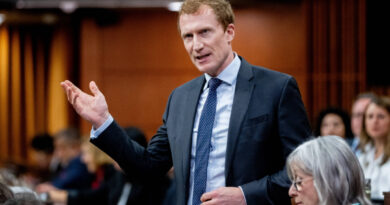Macron’s Center-Right Government Takes Shape in France, Blocking Left-Wing Leadership
The 39-member Cabinet was notably dominated by politicians from the center and right.
French President Emmanuel Macron announced on Saturday the formation of a new government, after two months of deadlock following a snap election in June that resulted in a hung Parliament.
The new 39-member Cabinet is composed largely of centrist and right-wing politicians, signaling a shift to the right, as Macron appointed members of the conservative Republicans party to key positions.
Macron earlier appointed right-wing politician Michel Barnier, member of the Republicans party and former European Union Brexit negotiator, as the country’s new prime minister.
In the new appointments, Macron named 10 politicians from the Republicans party for the Cabinet, with Bruno Retailleau named as the new interior minister.
Retailleau, known for his hard-right views, will oversee the country’s contentious issues including national security, law enforcement, and immigration.
Macron has kept his closest allies in other key positions, including Sebastien Lecornu, who will stay on as defense minister, and Jean-Noel Barrot, the outgoing minister for European affairs, who was named foreign minister.
The public finances portfolios, shared with new budget minister Laurent Saint-Martin, will face the difficult task of putting together a budget bill before January, as France grapples with a spiraling deficit.
The only left-wing politician added to the Cabinet was Didier Migaud, who was appointed as justice minister.
The new Cabinet will meet for the first time on Monday afternoon.
Politicians from the NFP have already said they will challenge Barnier’s government with their own no-confidence motion. But Macron argued that such a motion would not win enough support.

French Prime Minister Michel Barnier speaks during the evening news broadcast of French TV channel France 2 at the France Televisions studios in Paris on Sept. 22, 2024. Julie Sebadelha/POOL/AFP via Getty Images
No group emerged from the snap election with a clear majority, with the vote evenly split between the NFP, Macron’s centrist political party Renaissance, and the National Rally.
A left-wing coalition, which includes La France Insoumise, the Socialist Party, the Ecologists, and the French Communist Party, emerged as the result of a last-minute political alliance thrown together on June 10 following National Rally’s victory in the European Parliament elections.
Owen Evans and Reuters contributed to this report.





